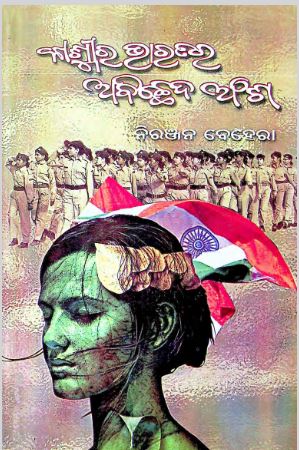Niranjan Behera’s “Kasmir Bharatar Abichhed Ansa,” published in 2009, stands as a remarkable contribution to Odia literature, offering profound insights into the intricate socio-political and historical aspects of Kashmir. This essay book delves into the multifaceted dynamics of the Kashmir issue, an area fraught with complexity and layered with historical significance. Behera’s work is an exposition that not only delineates the historical trajectory of Kashmir but also dissects its contemporary implications with an incisive analytical lens.
The book is structured into sub-essays, each addressing a specific facet of the Kashmir conundrum, thereby providing readers with segmented yet comprehensive coverage. Through these sub-essays, Behera meticulously traces the evolution of the Kashmir issue, from its historical roots and the princely state’s accession to India, to the consequent political maneuverings that have shaped its current status. The sub-essays collectively form a coherent narrative that is both educative and thought-provoking, making it accessible to readers from varied backgrounds interested in understanding the Kashmir dilemma in greater depth.
One of the most compelling aspects of Behera’s work is his exploration of the historical context. He ventures into the annals of history to uncover the ancient connections between Kashmir and the broader Indian subcontinent. By examining the early rulers, cultural exchanges, and the region’s integration into various empires, Behera underscores how history has a bearing on the contemporary socio-political landscape. His methodical recounting of events leading up to the Partition of 1947, and the subsequent accession of Kashmir to India, provides a solid foundation for readers to understand the genesis of the present-day disputes.
Behera does not shy away from addressing controversial and sensitive periods, including the tribal invasion of 1947, the various wars between India and Pakistan, and the rise of militancy within the region. His narrative is balanced, offering perspectives from multiple stakeholders, thereby fostering a nuanced appreciation of the subject.
What sets “Kasmir Bharatar Abichhed Ansa” apart is its emphasis on discussion. Behera initiates a dialogue about the different political and ideological perspectives surrounding the Kashmir issue. He presents a panoramic view that includes the Indian government’s stance, Pakistan’s claims, the aspirations of the Kashmiri people, and the international community’s viewpoints. This multidimensional discussion encourages readers to ponder over the myriad of influences that shape policy and public sentiment regarding Kashmir.
Behera’s discourse extends to the peace initiatives and negotiations that have taken place over the decades. He critically examines their successes and failures, offering insights into why some approaches have faltered and how future efforts could possibly bring about a resolution. His analysis of the socio-economic conditions within Kashmir, coupled with the human rights narrative, adds a humanitarian angle to the conversation, reminding readers that beyond the geopolitical strategies, there are real lives affected by the ongoing conflict.
In sum, Niranjan Behera’s “Kasmir Bharatar Abichhed Ansa” is a significant literary endeavor that serves as both an educational resource and a catalyst for deeper contemplation. By interweaving historical facts with current discussions, Behera invites readers to engage with the Kashmir issue in a meaningful way. Published in 2009, this work remains relevant, reflecting the timeless complexity of Kashmir and the enduring quest for understanding and peace. It is a pivotal read for anyone seeking to grasp the intricacies of this long-standing conflict through the lens of an Odia essayist’s perspective.
Books Info
| Books name | Kasmir Bharatar Abichhed Ansa/କାଶ୍ମୀର ଭାରତର ଅବିଚ୍ଛେଦ ଅଂଶ |
| Author | Niranjan Behera |
| No Of pages | 186 |
| Publisher | Dipak Publication |
| Publication | 2009 |
| Printed At | Dipak Press |
| Distributor | NA |

